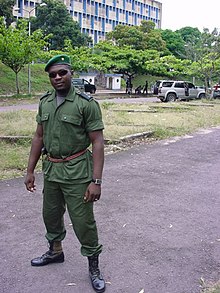Bu bu but Africa is a failed continent cos Africans are lazy.





 I need to research this.
I need to research this.They saying this dude is the one who hired the Americans and other foreign mercs.
Apparently, he's the head of the Congolese United Party living in exile from the Congo and was trying to eliminate current leadership so that he could come to power.

I never knew that the Congo and Zaire are the same nation.I need to research this.
they are mercs = guns for hire
no different than the Wagner group and usually leveraged by Israel



i think in the Ali movie they explained how the portuguese actually assigned the name of Zaire to them when they arrivedIt's blowing my mind that Zaire and Congo are the same country. I remember learning about Zaire as a child but for some reason, I never heard of them changing their name to Congo.
The country's name, Zaïre, was derived from the name of the Congo River, sometimes called Zaire in Portuguese, which in turn was derived from the Kikongo word nzere or nzadi ('river that swallows all rivers').


Kongo or Kikongo is one of the Bantu languages spoken by the Kongo people living in the Democratic Republic of the Congo (DRC), the Republic of the Congo, Gabon, and Angola. It is a tonal language. The vast majority of present-day speakers live in Africa. There are roughly seven million native speakers of Kongo in the above-named countries. An estimated five million more speakers use it as a second language.[1]
Historically, it was spoken by many of those Africans who for centuries were taken captive, transported across the Atlantic, and sold as slaves in the Americas. For this reason, creolized forms of the language are found in ritual speech of Afro-American religions, especially in Brazil, Cuba, Puerto Rico, Dominican Republic, Haiti, and Suriname. It is also one of the sources of the Gullah language, which formed in the Low Country and Sea Islands of the United States Southeast.[3] The Palenquero creole in Colombia is also related to Kong creole.